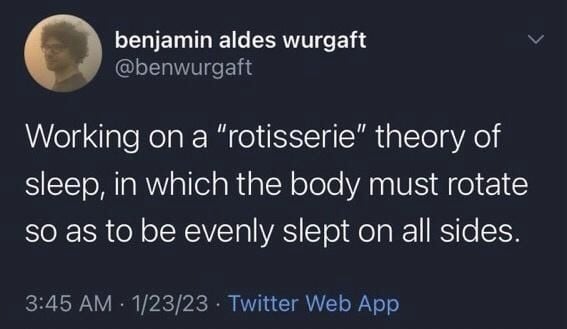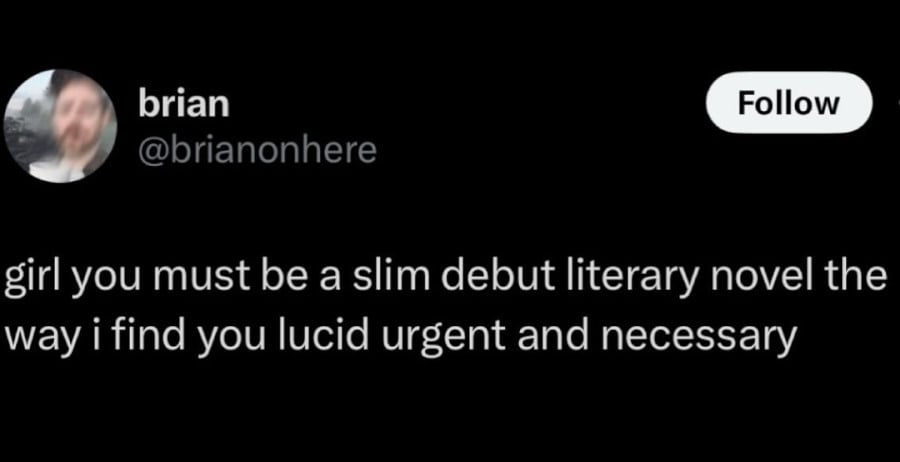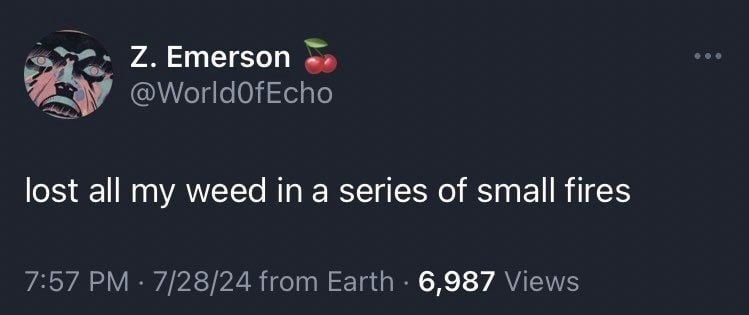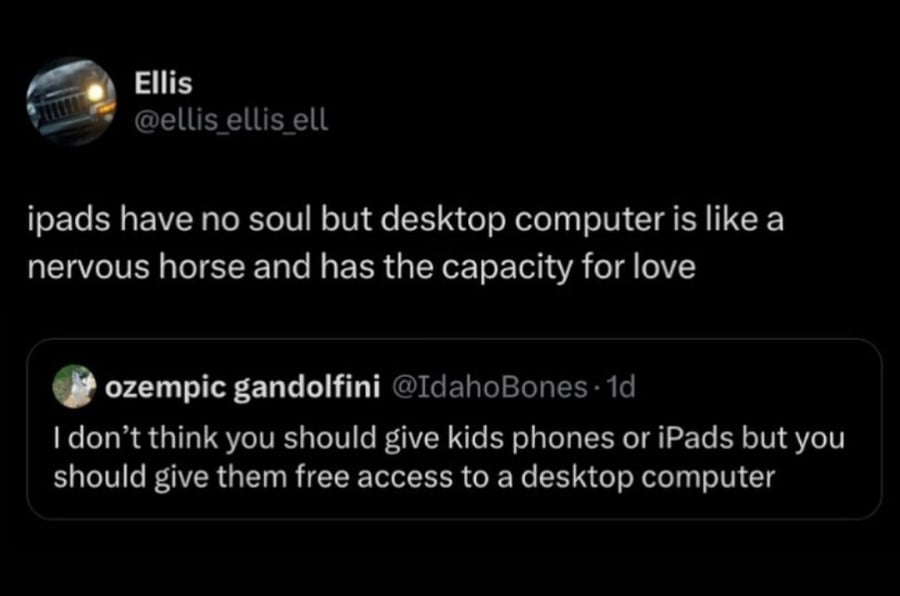nothing here but babygirl mysticism
issue 283 - 2nd March, 2025
CJW: Welcome, welcome. We have another full issue, so let’s get right to it.
If you would like to support us, you’ve got a couple of options:
Both give you access to the full bonus archive, as well as new bonuses as they are posted. Another thing you can do to help spread the word is forward this email to someone you think might enjoy it.
The Team
Daniel Harvey (DCH) - Designer, writer, provocateur. Pro-guillotine tech critic. @dancharvey
Marlee Jane Ward (MJW) - is also Mia Walsch. Writer & visual artist. Hates the internet.
Corey Jae White (CJW) - author, voidwitch, top dog.
Lidia Zuin (LZ) - Writer, fulltime goth and metalhead.
Geopolitics & Empire
DCH: Democratic Insiders Are Sharing A Warning About Curtis Yarvin, Elon Musk & Neoreactionaries by Robert Evans
I don’t disagree that he is compromised, but I see his actions as very much consistent with those of a man seizing power for himself. I think it would be a strategic mistake to focus popular messaging around this in terms of how it empowers “America’s principal foreign adversaries”. The primary adversary Musk has empowered is himself, and he is now a greater danger to every citizen of the United States than any foreign government.
Robert Evans on a document making the rounds in DNC circles. It’s a good enough analysis of the Neoreactionary movement and the players within it. Read through to the end for the sad but typical punchline…
//
DCH: This Is How Trump Will Smash the Machine of U.S. Economic Power by Abraham Newman and Henry Farrell at The New York Times
America’s adversaries have long found it hard to persuade America’s allies to defect from America’s economic networks. Mr. Trump’s second term has changed their calculus — now even European allies are quietly talking about moving closer to China. It’s increasingly hard to see the benefits they get from their ties to America, and increasingly easy to see the costs.
Not that I’m a fan of American Imperialism but it's hard to not to see the Trump administration’s erratic policies, internal factionalism, and lack of strategic consistency as anything but a deliberate attempt to unwind it. Which wouldn’t be a bad thing if they weren’t actively trying to replace it with CEO Kings and God Emperor Musk.
//
TikTok Ban Fueled by Israel, Not China - Ken Klippenstein - CJW: This was obvious a long time ago, but if you ever thought it was just a conspiracy theory, here's some facts.
Turkey draft bill could write 'biological sex' into law and criminalise 'promotion' of LGBTQ - Alex MacDonald at Middle East Eye
“The dozens of individuals who work under, or advise, Musk and the Trump-ordered Department of Government Efficiency — individuals who TechCrunch has identified or confirmed independently — reflects more than the billionaire’s proclivity to collect talent. They are a real-life illustration of Musk’s web-like reach in the tech industry.” The people in Elon Musk’s DOGE universe by Kirsten Korosec by Zack Whittaker. Charles Rollet, Sean O'Kane, Lorenzo Franceschi-Bicchierai at TechCrunch (DCH: in case you wanted a handy list of names of active participants in the coup…)
The Shrouded, Sinister History Of The Bulldozer - Joe Zadeh at Noema Mag
Science & Space
CJW: A Radical New Proposal For How Mind Emerges From Matter - Sally Adee at Noema Mag
Plants can sense — and with a bigger sensory suite than the one humans have. More importantly, they can integrate the information those senses carry and use it to make decisions. For example, the [...] Arabidopsis (the main model organism in plant physiology studies) markedly alters its hormone response depending on the size of a caterpillar munching on its leaves. When the attacker is small, the strategy is to keep them that way. “It’s better to be eaten by something small than by something big,” Farmer told me. And so, when attacked, “the leaf makes itself harder to eat” by producing toxic chemicals and proteins that interfere with digestion. This strategy slows the caterpillar’s growth and can delay pupation. One interpretation of this, according to Farmer, is that the plant can make a decision about how much energy to expend to repel pests based on the severity of the threat to its vital anatomy. Other plants have similar responses. Phaseolus lunatus (lima bean) mounts a particularly Machiavellian response: When a caterpillar starts snacking on it, it emits a chemical tailored to entice parasitic wasps, which swoop in like cavalry to pick off the predators. Ten years ago, researchers discovered that Boquila trifoliolata, a vine native to southern Chile, is somehow able to pass itself off as whichever species of plant is nearby, imitating its characteristic shape, color and pattern, possibly to entice pollinators or put off herbivores by assuming the guise of a less tasty snack. In one experiment, it even seemed to imitate a plastic houseplant.
Back on my bullshit - sharing fascinating articles on non-human intelligence, this time focused on plants. From there it also (as you can guess from the title) goes into the science and philosophy of intelligence more broadly.
//
DCH: China declassifies tech of world’s first high-orbit radar satellite, worrying US by Stephen Chen at The South China Morning Post
After 18 months of eye-in-the-sky secrecy, Chinese scientists have revealed the revolutionary technology behind the world’s first geosynchronous orbit synthetic aperture radar (SAR) satellite, giving China a permanent view of one-third of the Earth’s surface.
Call me silly but permanent surveillance of 1/3rd of the earth sounds a lot more worrying than whether or not China gets the latest nvidia chips to make plagiarism apps.
//
What removing large chunks of brain taught me about selfhood - Theodore H Schwartz at Psyche
Uh so about that asteroid by Matt Webb
How Elon Musk plans to upend NASA by Paris Marx
New Maps of the Bizarre, Chaotic Space-Time Inside Black Holes by Lyndie Chiou at Quanta Magazine
Tech & Design
DCH: What's really behind Elon Musk and DOGE's AI schemes by Brian Merchant
But, stupid or not, it’s a powerful fiction. It joins the echelon of other AI projects helmed by Musk and his cohort, like the “AI-first strategy” DOGE is implementing, the government chatbots they’re building, and the systems designed to automatically remove pronouns and DEI verbiage from government websites. The very idea that DOGE’s AI can streamline and automate the government is already being used to justify the hollowing out and the reshaping of the federal workforce. Leaning into the reputation of generative AI, which has been touted as the so-powerful-it’s-terrifying future by Silicon Valley and the media, and into his meme-agency’s mission of locating efficiencies, Musk has sold his operation as the future, and he has done so emphatically enough that GOP is more than happy to run with the charade.
I kinda feel like Merchant doesn’t answer his own question here (despite being a good read otherwise) so let me take a shot at doing so: He’s using this as a large scale Wizard of Oz prototype to further sell-in the AI con.
//
DCH: Palantir’s Call to Arms Is Also a Sales Pitch by John Ganz at Bloomberg
What really makes The Technological Republic so bad is that it’s not a book at all, but a piece of corporate sales material. The overriding message is “Buy Palantir!” and it is delivered with many clichés of urgency: “More than ever.” “The moment is now.” “The stakes are high.” “The stakes are high and growing.” “The stakes could not be higher.” The ideal customers are clear from the blurbs: people like former NATO secretary general Anders Fogh Rasmussen, General James N. Mattis, and JPMorgan Chase’s Jamie Dimon.
Long story short: they advocate for reverse-engineering critiques of fascism to do some fascism. This is the kind of thinking you get from morally compromised Jungian academics that end up in the security apparatus.
More from Ganz about it on his blog…
If ideas are bad, so is the writing. In fact, I strongly suspect the authors, who are strong proponents of the technology throughout the book, used A.I. to write it. And so does A.I.: I dumped the PDF into ChatGPT and it was very pleased to tell me that it was 85 percent certain that there was AI augmentation based on the frequency of “Clichéd Historical Generalizations,” “Overused Predictive Statements,” and “No Specific Examples Given.” Now, should we trust AI? I don’t know, but the authors seem to think so!
//
“OpenAI chief executive Sam Altman's sister, Ann Altman, has filed a lawsuit alleging that he regularly sexually abused her between 1997 and 2006.” OpenAI boss denies sister's allegations of childhood rape by Peter Hoskins at The BBC (DCH: I assume I missed this story back in January because of US politics dominating every news cycle.)
Hollywood’s obsession with AI-enabled ‘perfection’ is making movies less human - A.S. Hamrah at Fast Company
"I'm just fed up, and you know what? Let's fight back, even if it's not successful. Be indigestible. Grow spikes." - AI haters build tarpits to trap and trick AI scrapers that ignore robots.txt - Ashley Belanger at Ars Technica
Just the headlines:
Dutch pension fund ABP sells all Alphabet and Meta shares, CEO tells newspaper FD - Reuters
Inside Mark Zuckerberg’s Sprint to Remake Meta for the Trump Era by Mike Isaac The New York Times
Society & The Culture
CJW: Soy Right ascendant - Max Read (via Jared Shurin)
To me the other key aspect of the Soy Right psychological profile, beyond its desperate need for approval and respect, is a childlike refusal of agency and responsibility, even while in p ill ower. A 20-something with access to Treasury Department systems is a “kid” whose racism shouldn’t be disqualifying. The South African billionaire throwing Nazi salutes is a enthusiastic neuroatyptical man who needs our sympathy. The Vice President of the United States would never have attracted the attention of the Pope if it weren’t for “hysteric progressives,” the real villains. Silicon Valley oligarchs were “driven into Trump’s arms” by the perfidy of Democrats. No one in the Soy Right makes affirmative choices; they’re smol beans who need protection and care.
I'm sure we've all been aware of the Soy Right as a phenomenon (it's been pretty hard to miss), but I hadn't come across the term before. And it's possibly a useful term precisely because it's simple and denigrating - they want people to like them or think they're cool, but they're worthy only of derision (and, honestly, violence as they're happily embracing fascism).
Max also connects the above to GamerGate, and includes some great pull quotes from other worthwhile sources, so the whole piece is well worth reading.
//
CJW: Her job is to remove homeless people from SF's parks. Her methods are extraordinary - Susan Freinkel at San Francisco Standard
An incredibly touching piece about one park ranger's efforts to help unhoused people living in SF's parks find housing. At the same time though, it shouldn't fall on one incredibly caring and diligent person to make up for the system's many, many failures. Unhoused people aren't seen as people, they're seen as problems that can be solved with violence (if you don't think throwing an unhoused person's few possessions in a dumpster and criminalising their existence isn't violence, I have a liberal-fascist bridge to sell you), and that is what needs to change. Especially as we're only going to see an increase in the number of people left unhoused by constant fucking rent hikes, cost of living increases, and extreme weather events.
//
CJW: The man who discovered media codes and how to resist them Annalee Newitz (via Sentiers)
Finally, there is the “oppositional” position. This is where Gramsci does a little dance in his prison cell, because he can feel the counter-hegemony rising. An oppositional decoding is when a receiver perceives the truth behind the discourse — the truth of power relations. It’s the moment when you’re watching a politician on TV say “freedom,” and you realize that the politician only means freedom for white, cisgender people. Or when you’re watching a supposedly wholesome teen comedy and realize that it’s incredibly racist.
It's been a long time since I officially did any media studies, but this piece is a great encapsulation of encoding and decoding of messages in media (incl. news media, but also any other medium that contains a message). The oppositional approach is where I - and I'm sure a lot of our readers - live. It's why I love to watch blockbuster films or popular TV shows and tear it apart to isolate the hegemonic messages it contains (like the Islamophobia and maybe even straight-up Zionism in Pantheon season 2), or imagine a version of the media in question with good politics.
I've certainly come across the ideas presented here, but Newitz has laid it all out in a very approachable way. It's part 2 in a series, so I subscribed to the newsletter to see what's next (Buttondown solidarity!).
//
CJW: This Was Fairly Trivial - Lee Cicuta
Eric Adams referred to the importance of symbolism in his choice to participate in Mangione’s perp walk, and indeed every aspect of this case is a fight over symbols and narrative. From the moment Brian Thompson breathed his last, it has been imperative for the State to capture the person who pulled the trigger as rapidly as possible and destroy them before the public eye. Yet, each attempt to crush out the strength of the symbol — from the perp walk to the terrorism charges — does little but strengthen the public’s attachment and sense of affinity with it. The direct action was taken against the head of a corporation in an almost universally detested industry whose profit is extracted by denying care.
A long and great read on the assassination of the UHC CEO Brian Thomson from a distinctly radical leftist POV - the shooting, the response (police, media, and public), as well as the symbolism and messaging of the state and captured media, etc etc. It's long, but offers a lot of nuance.
And this is an incredibly important note to consider, especially if you've stopped masking:
Too much ground has been ceded to the ableist project of coercive mass infection for the sake of returning to a mythical idealized past, a fundamentally fascistic project. It is long past time for the radicals who have submitted to that project to recognize our ability to both obscure our identities from the surveillance state and stop the spread of viral illness as the crucial political territory that it is. It is time to mask up. And also please do take care to cover your eyebrows while you’re at it.
Health, Cooking, and Related
DCH: COVID Broke the Rules of Virus Evolution by Sarah Zhang at The Atlantic
> In truth, scientists were both right and wrong about the speed at which SARS-CoV-2 mutates. The rate of mutations as this virus jumps from person to person is indeed unimpressive. But scientists were not aware of a second, accelerated evolutionary track: When SARS-CoV-2 infects a single immunocompromised patient, it can persist for months, accumulating countless mutations in that time.
Emphasis mine. This is why Omicron appeared with over 50 mutations. Which would have taken 4 to 5 years of circulation at scale in a normal virus.
//
DCH: Inside the Collapse at the NIH by Katherine Wu at The Atlantic
For decades, the National Institutes of Health has had one core function: support health research in the United States. But for the past month, the agency has been doing very little of that, despite multiple separate orders from multiple federal judges blocking the Trump administration’s freeze on federal funding. For weeks on end, as other parts of the government have restarted funding, officials at the Department of Health and Human Services, which oversees the NIH, have pressed staff at the agency to ignore court orders, according to nearly a dozen former and current NIH officials I spoke with. Even advice from NIH lawyers to resume business as usual was dismissed by the agency’s acting director, those officials said. When NIH officials have fought back, they have been told to heed the administration’s wishes—or, in some cases, have simply been pushed out.
While Trump and Musk are distracting the media with their antics, henchmen like RFK Jr are hard at work breaking things.
//
“A 25-year-old woman with type 1 diabetes started producing her own insulin less than three months after receiving a transplant of reprogrammed stem cells1. She is the first person with the disease to be treated using cells that were extracted from her own body.” Stem cells reverse woman’s diabetes — a world first by Smriti Mallapaty at Nature Publishing Group
“UnitedHealth Group is attempting to swat down a non-binding shareholder proposal that asked the company to prepare reports on the costs of delayed and denied healthcare.” UnitedHealth Group resists shareholder proposal on delayed and denied care by Jessica Glenza at The Guardian
Books
LZ: On Mysticism, by Simon Critchley
I found this book by coincidence, highlighted in a bookstore in Manchester. Apparently Critchley is known for writing about atheism and philosophy from an atheistic perspective, but in this book, he kind of redeems himself by finding his religious connection in mysticism. It is a very interesting and easy read, I devoured the book in a few weeks and highlighted it a lot. It's definitely going to be a recurring resource in some essays I am planning to write, and there were some serendipitous parts that really made me smile – like him being friends with Eugene Thacker, who wrote the series Horror of Philosophy, which I mentioned in previous issues of this newsletter and which was also a reference for my article on cosmic black metal. I am currently writing an article on why I like dark, sad things, and this book landed graciously like a feather in my life by making the connections I have already drafted between the sublime, horror movies, and mysticism.
Critchley takes a very personal journey through mysticism, focusing mostly only in one mystic in particular, Julian of Norwich. She's the source for other connections with more artists and authors like Anne Dillard and the discussion on being an artist/writer, T.S. Elliot and what it means to be English (this part was the most confusing one, I have no idea why Critchley focused so much on this), and music as a source of mystic experience (in which he talks about Krautrock but also Nick Cave).
I think this book is like a combination of how Thacker tackles philosophy from an academic yet pop approach, but it also reminded me of This Party is Dead by Erica Buist, which is a more journalistic/memoir book that I totally didn't like for its lack of rigor. That is not the case here, but the style of combining your own life with the topic kinda gives makes me cringe, although it's nice and more humane, in a way… so it was a good read overall and the personal excerpts are the connecting dots that make the book less rigid and dull than a regular academic piece.
Movies + TV
LZ: Babygirl
I am not very versed in kinks and BDSM, but have been more interested recently… and that's why my friend took me to watch this new movie with Nicole Kidman as a tech CEO who starts a sub/dom dynamic with a much younger intern that joins her company.
The movie is not explicit, there's barely any nudity, and it's much more about the power dynamics between both characters. How Nicole's character despite being a strong, girlboss woman who doesn't take shit and is successful in her life, but at the same time has this kink of being submissive. She explains that she likes the thrill of being exposed or threatened to lose all she has achieved by doing something wrong (having an affair with a much younger intern).
I found it interesting how something that is a dynamic that should or would be restricted to the bedroom or sex spills over their daily lives and that's where the conflict starts. After the honeymoon phase, so to speak, the intern starts to show up at her house and get closer to her family, which is a big boundary break. She starts to put some limits, only for him to react like the man-child he actually is, offending her and especially going for her looks (she's of course insecure about being older).
As I said, I don't understand BDSM dynamics, but it made me think how some people may take these kinks out of context and live life like characters, just following a “trope” instead of leaving the roleplay and the fantasy part to intimacy. I don't want to spoil the movie, but the conclusion is that it's not really worth it, living this wild fantasy 24/7. It's not fulfilling, especially for mature adults.
I didn't watch 50 Shades of Grey, but I have the feeling that there is a redemption arch there where Grey stops being the douche dom and comes to terms with reality at some point? I don't know if that happens, but I suppose, after watching Babygirl, that's one of the only ways such dynamics can keep going on in a healthy, functional condition.
Shallow Grave
Fun British movie that is more of a thriller than a horror movie. There you can see young Evan McGregor, Kerry Fox and Christopher Eccleston sharing a super nice, big apartment in London. They try to find a fourth person to share the rent, and it turns out to be some sort of criminal who dies mysteriously and leaves behind a bag full of money. Since these three characters are all fucked in the head but also very smart, they try to get rid of the body, only to start being chased by the gang that wants the money back. It's a very intriguing movie, but I suppose it is only enjoyable because the actors are so good. Highlights for the techno song in the opening scene of the movie!
Huesera
Instant favorite. This is a Mexican horror movie about this woman who wants to get pregnant, so it starts with her going up long stairs to ask for help from Saint Guadalupe. She ends up pregnant, but she's constantly plagued by grim visions that she doesn't understand. That's where Mexican folk religion comes up as she goes to a healer to get a “pass” and be protected because apparently she's carrying a second, malign spirit which is both the child and the mother in her. You can see with time that it's possibly a reference to Huesera, the bone woman, an entity in Mexican folklore:
La huesera (The Bone Woman), is an old Mexican story of a woman who gathers bones in the desert. She collects all sorts of bones but her specialty is wolf bones. When she has assembled an entire skeleton, she sings to it until the wolf comes into being. The creature runs away eventually transforming into a woman who runs free towards the horizon.
I curiously started reading Women who run with the wolves recently and the huesera is mentioned there as an archetype of the wild woman. In this movie, the main character used to be a goth and date a girl, who she meets again at some point for support. But there's both a conflict about her denying her “wild” essence represented by being a teenage goth, and the desire to be a mother and pursue a more “normal” life.
The soundtrack is great, the photography also shows a very interesting take on Mexico City and I love the blend and controversies of folklore, religion, and morality. Definitely the kind of horror movie which I like as it checks the tropes of pregnancy horror, folk horror, subcultures, and feminism. It's available on Shudder.
The Blackcoat's Daughter
Ethel Cain turned into a horror movie. I even researched whether she was involved in the soundtrack, but she wasn't. It's an interesting film, with nice aesthetics that give this American gothic vibes. It tells the story of this Catholic boarding school, starting with a date when the students should go out on a week-pause, but the parents of two students never come to get them. It's a bit of a mind-bending story that messes with timelines too, but it's a movie about religion, loneliness, demonic possession, and teenage girls facing the horrors of being… teenagers and girls. It is very atmospheric and I think it achieves very well a sense of Hopper loneliness in urban spaces but also the uncanny feeling of boarding schools and wintery darkness. I myself lived in a shared house managed by nuns, but I wasn't lucky like these characters to have a room just for me. Still, the memories came back almost immediately.
The Self-Promotion
CJW: Splinter Soul
This is my latest story for Flesh and Blood TCG - I’m not sure if I’ve shared them all so far (this is my 8th?), but this one is a bit different. Previously I’ve been working from outlines, but this time around I got to pitch some story ideas to the team at LSS, and after they picked the one they liked the best, I was able to write it as I liked. I guess I feel a bit more of a sense of ownership of this one, and the reaction of fans on Bluesky has been really great.
The Memes






You just read issue #283 of Nothing Here. You can also browse the full archives of this newsletter.